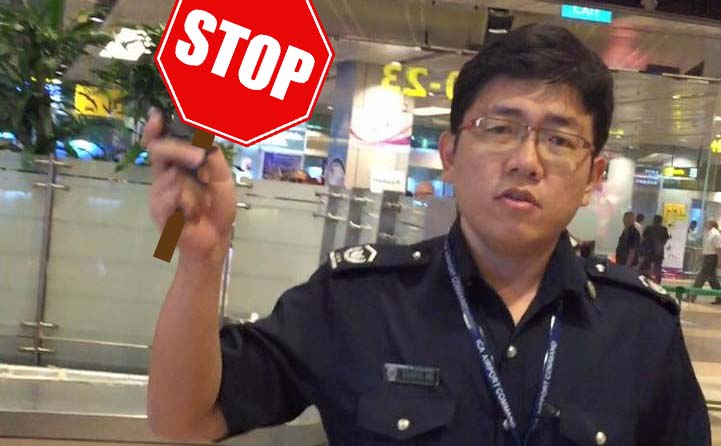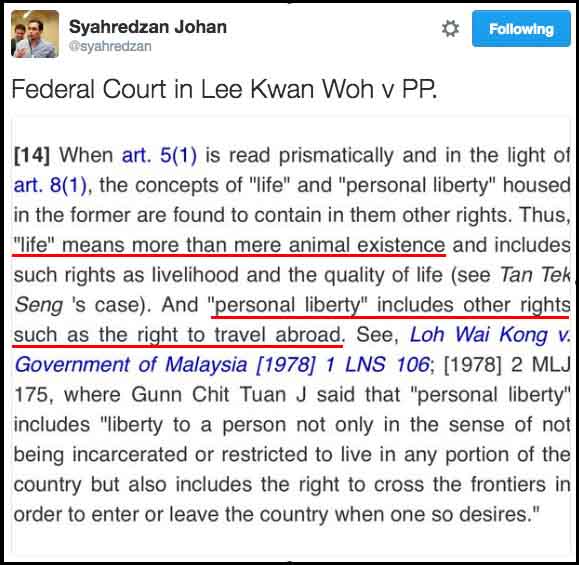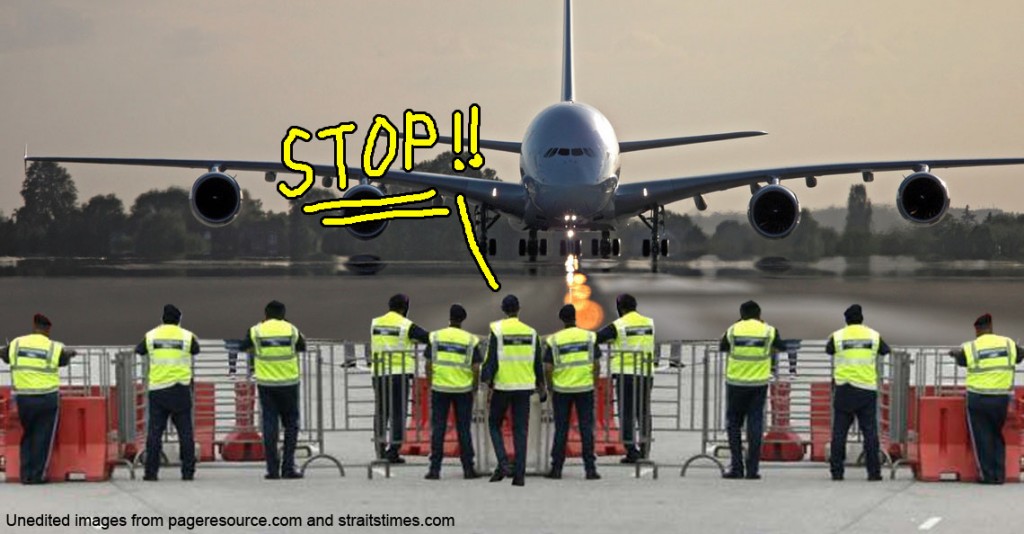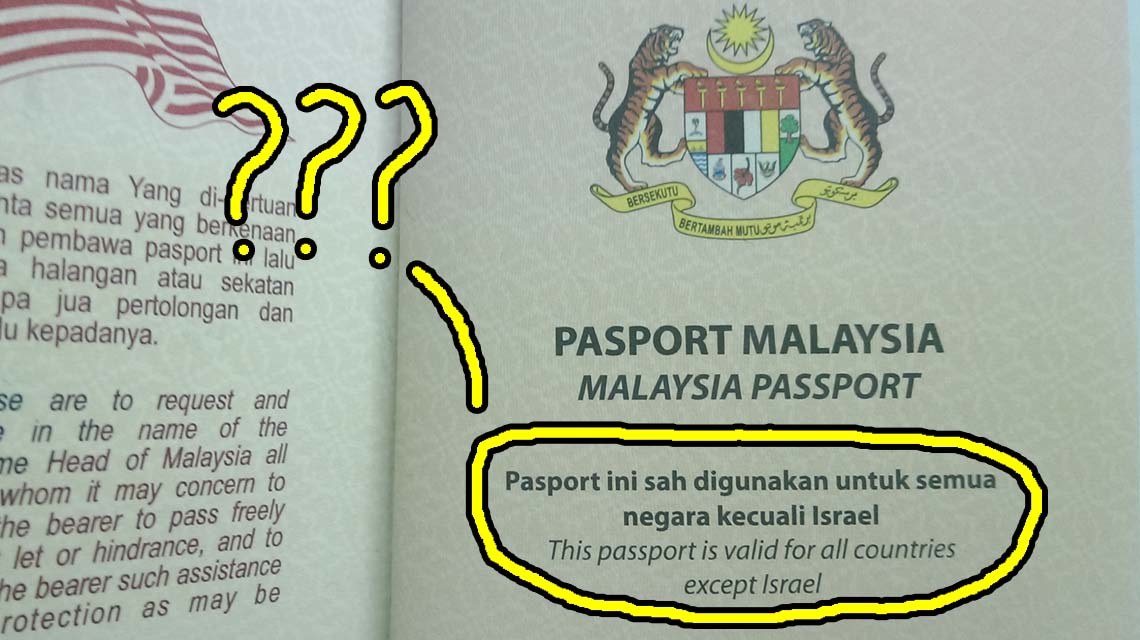Where is this law that stops penghina-gomen from leaving Malaysia?
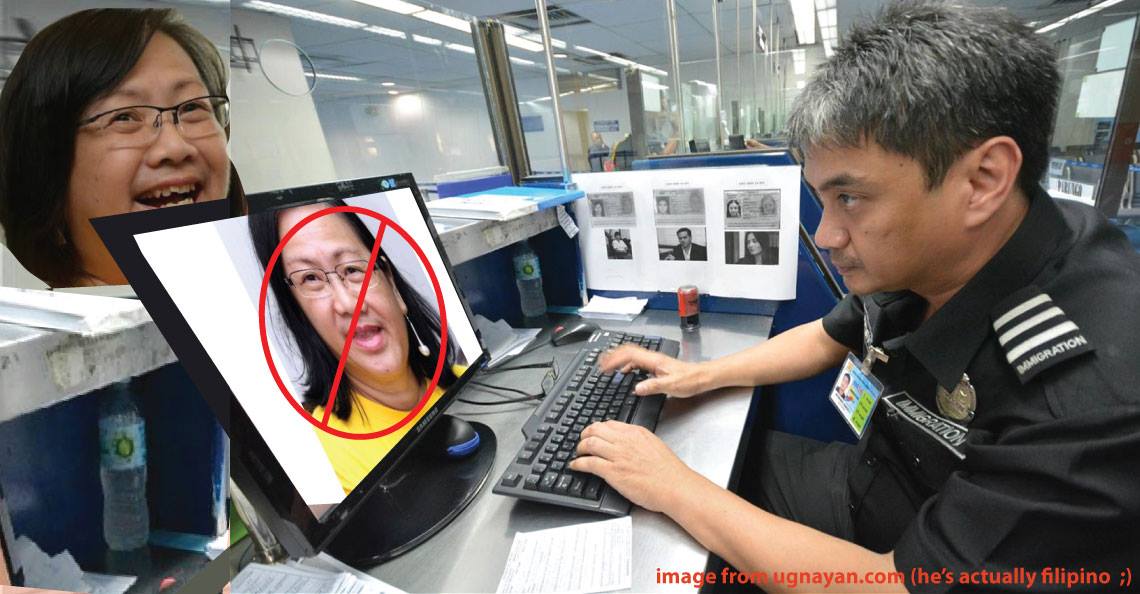
- 3.4KShares
- Facebook3.2K
- Twitter22
- Email50
- WhatsApp77
*Note: The immigration officer in the featured image is Phillippino Filippino Pinoy.
Whenever we decide to take a trip overseas, the main thing on our minds is stuff like whether we remembered to bring our passport, or if we remembered to pack enough underwear for the trip. What we don’t usually think about, however, is whether or not we can leave the country.
Unfortunately, some people have made it all the way to the airport only to be told that they’ve been barred from leaving the country. This was something that’s recently happened to Bersih 2.0 chairperson Maria Chin Abdullah, who was prevented from boarding her flight to South Korea to accept a Human Rights award on May 15th. There was no reason given for barring her other than it was “orders from Putrajaya“. Before this, activist Hishamuddin Rais was also barred from boarding his flight out of the country in December.
When pressed for further details, it was revealed in an exclusive by The Star that the immigration department recently enforced a ruling that anyone who made fun of of the government or made the government look bad can be barred from leaving the country for up to three years, in an effort to jaga our country’s image. This was also confirmed by the Immigration Department’s director-general Datuk Sakib Kusmi within the same article.
But the question is…. can the Malaysian Immigration actually do this? We spoke to epic lawyers Syahredzan Johan and Eric Paulsen for more info and as it turns out…
Yes, the Malaysian Immigration CAN stop you from leaving the country!
…But they need to tumpang somebody else’s legal power do it! ← What talking you??!
One of the things that Eric and Syahredzan pointed out is that the Immigration department – or more specifically the director-general of Immigration – relies on other laws to stop a person from leaving the county. The Immigration Act and Passports Act doesn’t give them such a power.
“There are no general powers given to the director-general to stop a person from leaving.” – Syahredzan, in phone interview with CILISOS
“The immigration has wide powers to stop people coming in or going out, but none to stop people from going out without a reason.” – Eric, in phone interview with CILISOS
In other words, they can’t stop you because they don’t like your face or because they feel like it 🙂
Instead, how it works is that other government agencies or departments will use their laws to ask the director-general (We’ll just call him D-G from now on) to stop a certain group of people. For example, the Department of Insolvency uses the Bankruptcy Act (Section 38A if you’re interested) to ask the D-G to stop a person who’s been declared bankrupt from leaving. The same applies for people who don’t pay back their PTPTN loans, under the PTPTN Act. You can read a pretty epic story of a girl who kena stopped for not paying her loan here.
Soooo… what law are they using to prevent people who memalukan negara to leave? Don’t hold your breath for an answer because when we asked Syahredzan and Eric – they’re still, um, looking for it.

Jinkies!
“I have no idea. There’s no such law to prevent people from traveling abroad.” – Syahredzan
“There’s nothing allowing the authorities to bar someone for badmouthing the country” – Eric
There you go, that’s the plane plain truth. There is no Malaysian law that bars you from traveling if you make the government or the country look bad. Of course, our lawyer friends could be wrong so maybe the government authorities have a better answer.
“You only have a passport because we sayang you” – Love, The Gomen.
Yeaaaaaaaaa…. the official word from the D-G and Deputy Home Minister Datuk Nur Jazlan is that a passport is PRIVILEGE rather than a RIGHT, meaning that your ability to travel overseas is because the government allows you to.
“The power to allow people to go in or out of the country is with the director-general. And he also issues the passport, which is actually a privilege, not a right.” – Datuk Nur Jazlan, Deputy Home Minister, as quoted by The Malay Mail Online.
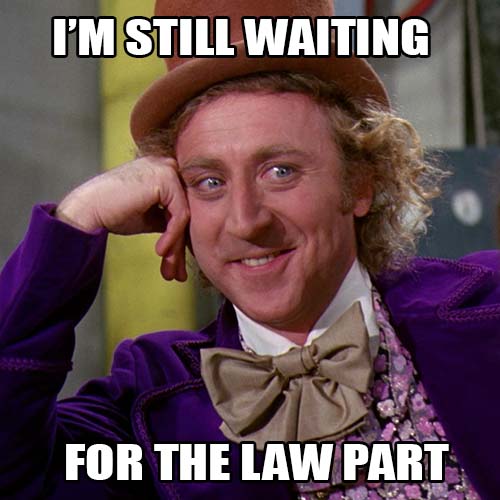
Sbb takde kot?
When we asked Syahredzan and Eric about this, they confirmed that a passport really isn’t a right; but they also brought up our favorite F-word – Federal Constitution.
Eric says that the argument of the passport being a privilege is a distraction from the main issue because the Federal Constitution (Articles 5-10 especially) guarantees our right to life and personal liberty, which includes the right to leave the country as well.
Syahredzan further points out that back in 2009, a landmark decision was made in the case of Lee Kwan Woh to expand the definition of “life” and “personal liberty” to “include other rights such as the right to travel abroad“. This is itself based on an earlier ruling from 1979 that reached a similar conclusion. If you wanna know why old cases are used as a reference, click here to read our article on it.
So this goes back to the same point that unless you broke some sort of law, there should be nothing stopping you from leaving the country.
“It appears to me that the Home Ministry or D-G has not told us which law they’re using, therefore making it unlawful and unconstitutional. If you’ve already issued out a passport, you can’t willy-nilly stop people from going overseas.” – Syahredzan
Now that this part is done, let’s look into what you can do if you find yourself barred from leaving. Also, Willy-nilly. hee hee 😀
What can I do if I’m banned from going overseas?

Let’s start with the easy one. First you might wanna check your immigration status online before booking any plane tickets #PSA. If you’re banned for legal reasons (such as bankruptcy), you’ll have to apply for special permission to travel from the relevant government departments (such as the Department of Insolvency).
However, with the case of shaming the country, it’s not as easy. Syahredzan says the only way is to challenge the decision in court, but the problem is that it’d be kinda like shooting in the dark because you’d be going in not knowing exactly why you’ve been banned, or who made the call to ban you. It’s like your dad wanting to spank you for something you did, but he doesn’t tell you what exactly what you’re being spanked for. How to defend????
Eric adds that Hishamuddin Rais actually tried to challenge his ban but failed because the courts didn’t want to campur tangan in the immigration process. This is mostly due to legal reasons because the Immigration Act has certain clauses (mostly in section 59A) to prevent the courts from intervening.
At the same time though, Eric clarified that just because the court doesn’t want to campur tangan, it doesn’t automatically mean it’s constitutional or legal. It just means the courts would rather not get involved.
So what does this mean for the rest of us? Well…
Now Not Everyone Can Fly™
You might be thinking “I didn’t make fun of the government, so why should I care?” Well, the reason why you should is because of accountability.
The reason why stuff like all these laws and the Federal Constitution exist is because they provide guidelines that the government and the Rakyat can operate (and live) under. Think of it this way… if you were still in secondary school and you came home one day with cane marks because the discipline teacher said you buat salah and caned you without telling you why, what would your parents do?
So if we the rakyat are expected to follow the rules, shouldn’t the government be bound to the same agreement? Or in this case at least make sure the these rules exist in the first place? Because – from the legal aspect of things – even if the government DOES pass a law that would make it an offense to badmouth them, at least this can be challenged in court. As Eric puts it:
“With incidents like this, the country seems like it’s no longer governed by rule of law. It’s “I do as I wish” “
So the question is – would you want to be in a school where the teachers can punish you using unwritten rules?
PS: If YOU know which law this falls under… please please please tell us and we promise to update k?

- MORE THAN 800,000 MALAYSIANS BARRED FROM LEAVING THE COUNTRY!? BUT WHY!?
- 10 FOREIGNERS DENIED ENTRY TO MALAYSIA FOR QUESTIONABLE REASONS
- 3.4KShares
- Facebook3.2K
- Twitter22
- Email50
- WhatsApp77


